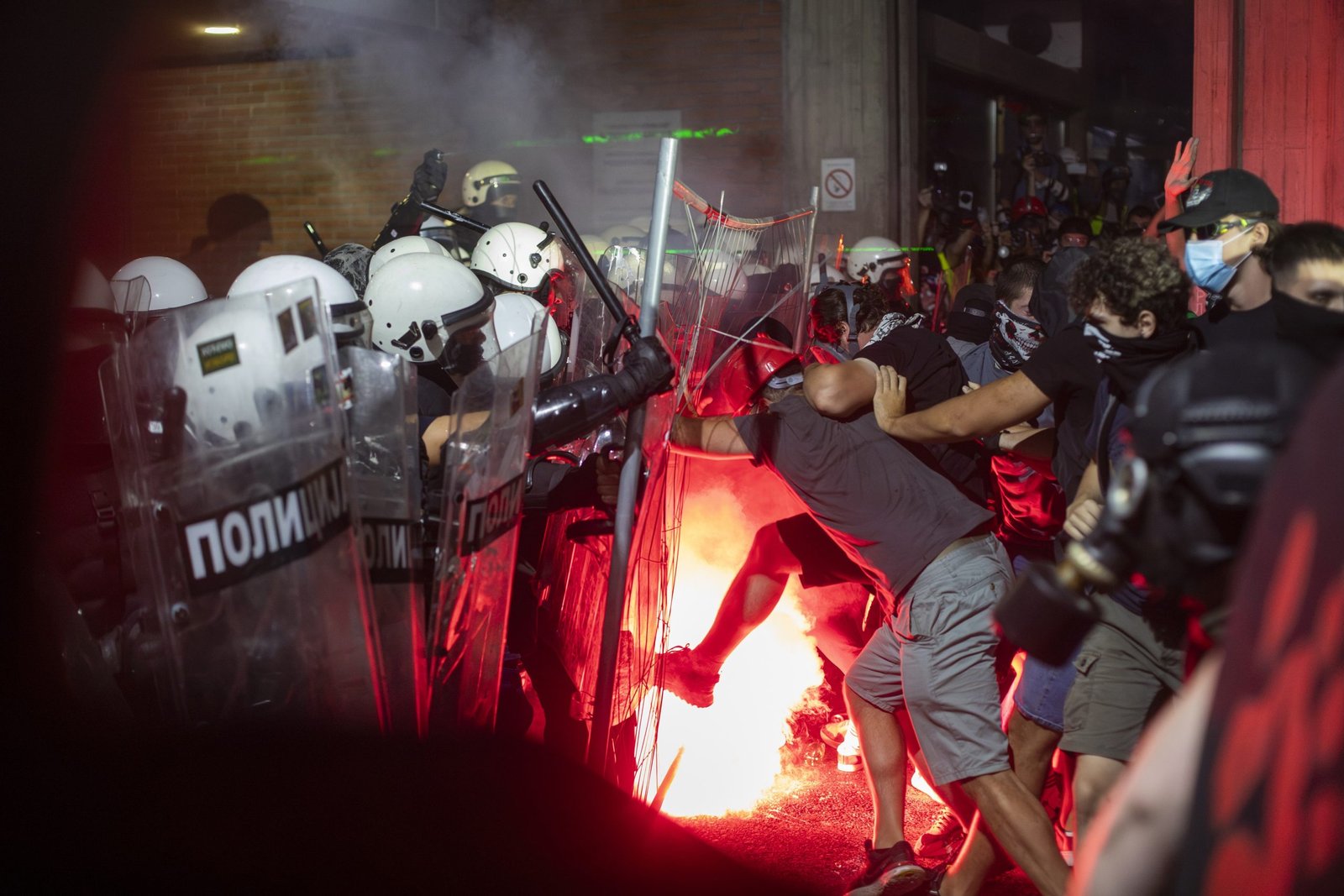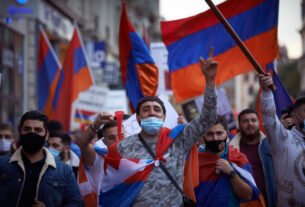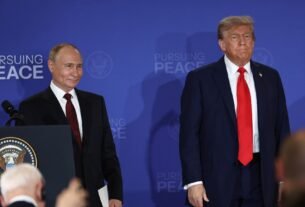The European Green Party has denounced threats from Serbian President Aleksandar Vučić, who said he would prosecute two senior party officials who took part in an anti-government demonstration on Friday night.
Serbian police forcefully dispersed thousands of protestors from the grounds of the university in Novi Sad, with Serbian media reporting the use of tear gas, batons, and stun grenades.
Rasmus Nordqvist, a Danish Green MEP, and Vula Tsetsi, the co-chair of the umbrella organisation of European Green parties, had joined the protests after appearing alongside leaders of the Serbian Green-Left Front at the national parliament.
In a televised late-night address after the police operation, Vučić lashed out at Nordqvist and Tsetsi, calling them “scum from the European Green Party … that came to support the violence in Novi Sad”, according to a party press release.
“I have to tell them that they will be prosecuted in line with the laws of Serbia,” Vučić said.
The European Green Party condemned his comments on Saturday as “crossing every line of democratic discourse” and undermining rule of law and freedom of speech in Serbia.
Nordqvist called on EU institutions to address what he described as Vučić’s “embrace of authoritarianism” in a country that remains a candidate to join the EU.
“There is a serious need for a change in the Commission and Council’s approach to him” Nordqvist said to Euractiv. “The citizens of Serbia look at the EU in wonder.”
Vučić’s Serbian Progressive Party is an associate member of Europe’s centre-right party family, the European People’s Party (EPP), of EU Commission President Ursula von der Leyen.
“The EPP must come clean about having an autocrat in the family,” Nordqvist told Euractiv.
The European Parliament is supposed to debate the “wave of violence and continuous use of force against protesters in Serbia on Tuesday.
Serbia’s most sustained protest movement since Yugoslav era
The student-led protests broke out last year over local corruption suspected to be behind the collapse of a station roof in Novi Sad that killed 16. They mark the most sustained protest movement in Serbia since the collapse of the Yugoslavian federal state.
Protestors demand early elections and the resignation of Vučić, who has ruled the country since 2014 – first as prime minister and then as president – in an increasingly authoritarian manner.
Universities have been the focal point of the activities, and protestors have occupied almost all universities in Serbia since the start of the demonstrations.
The latest clashes at the University of Novi Sad erupted after the institution’s dean forced protestors to clear the faculty of philosophy almost two weeks ago, which they had been occupying for nine months.
Police officers intervened on Friday night after protestors who had gathered attacked them with stones and bottles, the interior ministry said, with 42 people being arrested. Protestors have previously accused the authorities of orchestrating violence to justify a heavy-handed crackdown.
*Magnus Lund Nielsen and Eddy Wax contributed reporting
UPDATES: This article was updated to include comments given to Euractiv by Rasmus Nordqvist MEP.
(cp)





